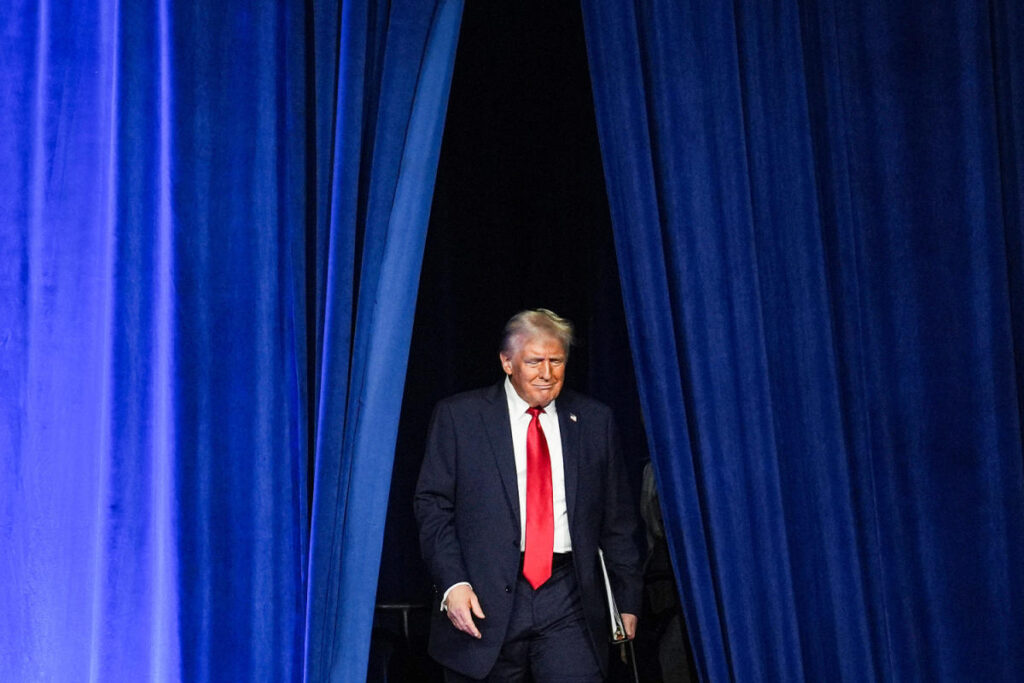As Donald Trump prepares for a potential return to the presidency, discussions amongst his advisers regarding the composition of his future Cabinet are ongoing. Central to this debate is whether to prioritize elected officials or to emphasize a blend of business leaders, political outsiders, and loyal supporters. Trump seems to favor appointing officials from outside government service, a shift informed by his experiences during his first term. Notable past selections like Steven Mnuchin and Ben Carson are viewed favorably for their perceived loyalty and success compared to some lawmakers whose contributions were marred by controversies and scandals, such as Jeff Sessions and Tom Price. The desire to avoid difficulties associated with replacing sitting officials in the Senate, as evidenced by the fallout from Roy Moore’s lost special election in Alabama, further complicates the staffing decisions.
While key positions are still undetermined, some potential candidates have already indicated their intentions regarding Cabinet roles. For instance, Sen. Eric Schmitt from Missouri and Sen. Marco Rubio from Florida are both seen as plausible picks, with Rubio expressing his willingness to serve if asked. However, others, such as Sen. Tom Cotton of Arkansas, have opted out of consideration for various personal and political reasons, including family impacts and aspirations for Senate leadership roles. As the transition team deliberates, Cotton’s decision highlights the broader concern of the personal sacrifices candidates make when entering the administration.
An important factor in Trump’s appointment considerations is the prospective impact on his political agenda and the functioning of Congress. Strategists within the Trump camp have emphasized that appointing too many sitting lawmakers could hinder the President’s ability to push through his agenda, particularly in the crucial first 100 days of his administration. Additionally, the involvement of Trump’s eldest son, Donald Trump Jr., has been noted in terms of influencing personnel choices, as he has committed to preventing selections that might undermine his father’s goals. His approach is guided by a desire to eliminate officials who may be tied to the “swamp,” implying skepticism toward more conventional political figures.
Rubio is positioned as a strong candidate due to his experience and previous vetting as a pitch for the vice-presidential slot. Given his established relationships in the Senate, a potential confirmation process might be smoother for him compared to others. However, the posturing of Trump’s advisers reflects a caution borne out of previous administration experiences, which revealed that many congressional appointees turned into unexpected liabilities or disappointments. This cautiousness echoes Trump’s negative experiences with former appointees, notably Sessions and Zinke, who both embroiled the administration in controversies that highlighted the perils of selecting those with legislative backgrounds.
The historical context of Trump’s first term is significant in understanding current selection strategies, especially as it relates to how certain Cabinet choices can potentially jeopardize not only his agenda but also the party’s overall standing. For instance, Sessions’ recusal and management troubles, Tom Price’s resignation over spending practices, and Zinke’s misconduct allegations serve as cautionary tales in appointing elected officials. The implications of these choices ripple out into the political landscape, affecting not only individual seats but also national party dynamics. After experiences marked by challenges and unexpected fallout, Trump’s administration is keen on applying lessons learned to avoid similar pitfalls.
In conclusion, as Donald Trump gears up to re-enter the political scene, the staffing of his Cabinet is critical in shaping his administration’s effectiveness and political future. The deliberations underscore a strategic pivot toward selecting non-elected officials to stave off complications arising from Congressional dynamics and the historical baggage of prior selections. While some established politicians like Rubio are viewed as advantageous due to their service background and party relations, the overarching goal remains clear: to fortify Trump’s agenda and mitigate the risks of damaging political fallout that previous selections have generated. With familial and political considerations at play, the forthcoming decisions will ultimately signal Trump’s vision for his next term and the evolution of his administration’s approach to governance.

